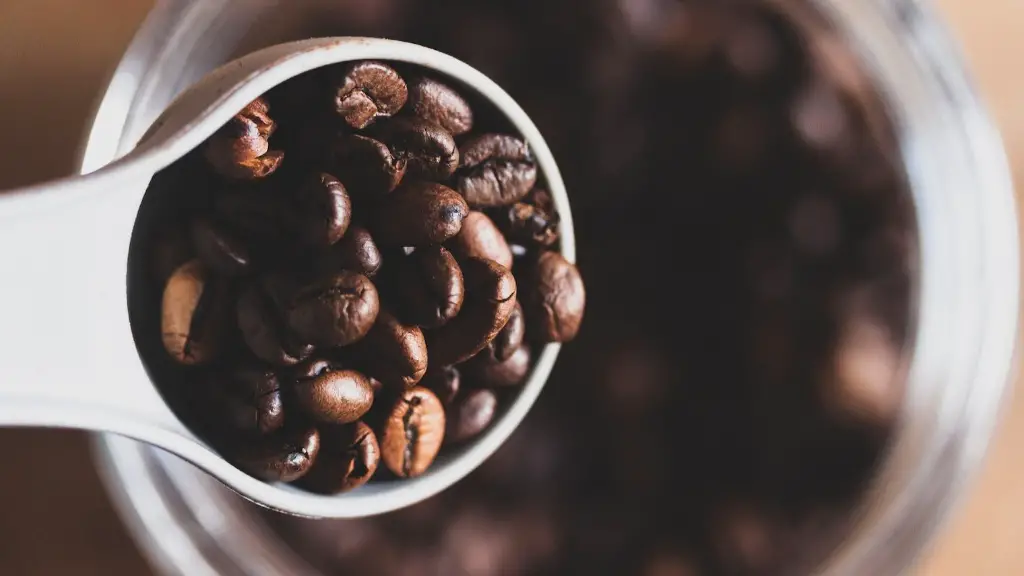Introduction
Coffee has been a beloved beverage around the world for centuries, with many assuming its effects are limited to a temporary energy boost. Recent studies, however, have suggested that drinking coffee can be linked to digestive discomfort, with some people reporting stomach pain or cramps after consuming it. Knowing the distinction between these two states can be helpful to understand how coffee affects the digestive system and whether people should consider drinking it or look for an alternative.
What Causes Stomach Pain After Drinking Coffee?
Studies suggest that coffee may disrupt the normal functioning of the digestive system, leading to stomach pain and discomfort. This is primarily due to the beverage’s chemical makeup. As such, coffee contains a considerable amount of caffeine and other chemical compounds, such as volatile acids, which can irritate the gastrointestinal tract and affect its functioning. In addition, coffee has been shown to increase the production of acid in the stomach, disrupting the balance of acids and digestive enzymes, ultimately resulting in feelings of discomfort and pain.
Moreover, drinking coffee with an empty stomach amplifies these effects, as acid production is higher in a situation of low food intake. This means that people with sensitive stomachs should be especially careful when consuming coffee and be mindful of their eating patterns. Furthermore, certain populations, such as pregnant women and those with certain medical conditions, may be more prone to suffering these effects, as their bodies may be less adapted to caffeine consumption.
Does It Mean That Everyone Who Drinks Coffee Experiences Stomach Pain?
Not necessarily. For starters, many people experience some form of digestive discomfort after drinking coffee and don’t attach sufficient importance to it to limit their consumption. In addition, the effects may be mitigated through the consumption of certain foods before or during the ingestion of coffee, such as yogurt or dairy products, which can help in buffering the effects of the acids contained in coffee. Moreover, some people may be more tolerant to these effects and thus experience no discomfort at all.
What Other Effects Does Coffee Have On The Digestive System?
In addition to its effects on digestion and discomfort, coffee can also lead to a variety of other reactions in the digestive system. Studies indicate that coffee can act as a stimulant, provoking a feeling of fullness shortly after drinking it. This can be useful to improve digestion and the general functioning of the digestive system, however, it should not be taken as an indication of weight-loss potential, as any effects it triggers are short lived. In addition, coffee can cause an increased bowel movement, and, as such, should be taken with caution in certain circumstances and with certain conditions in mind.
What Are The Alternatives to Drinking Coffee?
For those who experience digestive discomfort and pain after drinking coffee, there is no need to worry, as there are various alternatives that may help improve the condition without sacrificing the beloved beverage. Probably the most appealing and common alternative is to switch from regular coffee to decaffeinated coffee, as this offers most of the same benefits without the associated risks of stomach pains and discomfort. Alternatively, people who simply cannot live without caffeine may opt for low caffeine options, such as cold brew coffee, as this has considerably lower levels of caffeine in comparison with regular coffee.
How To Limit Digestive Discomfort After Drinking Coffee?
Although the effects of coffee on the digestive system can be severe, there are several steps people can take to limit these side effects. Firstly, it is essential to limit the caffeine intake and pay attention to the total daily intake, as exceeding the recommended daily amount may worsen the effects. Secondly, people should pay attention to when they consume the beverage and what other foods they have eaten beforehand, as this can help limiting the discomfort. Finally, consulting a doctor may be beneficial for those with a more sensitive digestive system, as they may be able to offer more specialized advice and recommend treatments or lifestyle changes to help reduce the side effects of drinking coffee.
Coffee and Health Benefits
Despite potential side effects to the digestive system, there are a plethora of health benefits associated with it. Medical experts suggest that certain compounds present in coffee, such as caffeine, can be useful in battling chronic allergy and inflammation, while others argue that it offers a welcome antioxidant-rich kick, which may help prevention of certain diseases. Additionally, some suggest that caffeine itself can help with focus and alertness and can thus be beneficial to people seeking an energy boost, especially in a setting of heavy physical or mental exertion.
Drawbacks of Coffee Compared with Alternative Beverages
Although coffee is trusted for its energy-boosting qualities and range of health benefits, it may not be the best choice for some. For starters, excessive caffeine intake can be damaging to health, leading to disrupted sleeping patterns. Additionally, its acidic content may negatively affect the teeth, as with any other beverages of acidic nature. Finally, coffee may – when consumed in coffee shops – contain a high amount of sugar and other additives, adding unnecessary calories to the diet and compromising weight loss efforts.
Conclusion
In conclusion, drinking coffee can lead to digestive discomfort and pain, especially in certain individuals and when consumed in excess. Knowing the risks can help people take the proper precautions, as well as look for alternatives to the beloved beverage when in appropriate. Finally, its potential health benefits should not be overlooked and can be used judiciously to improve overall well-being.


